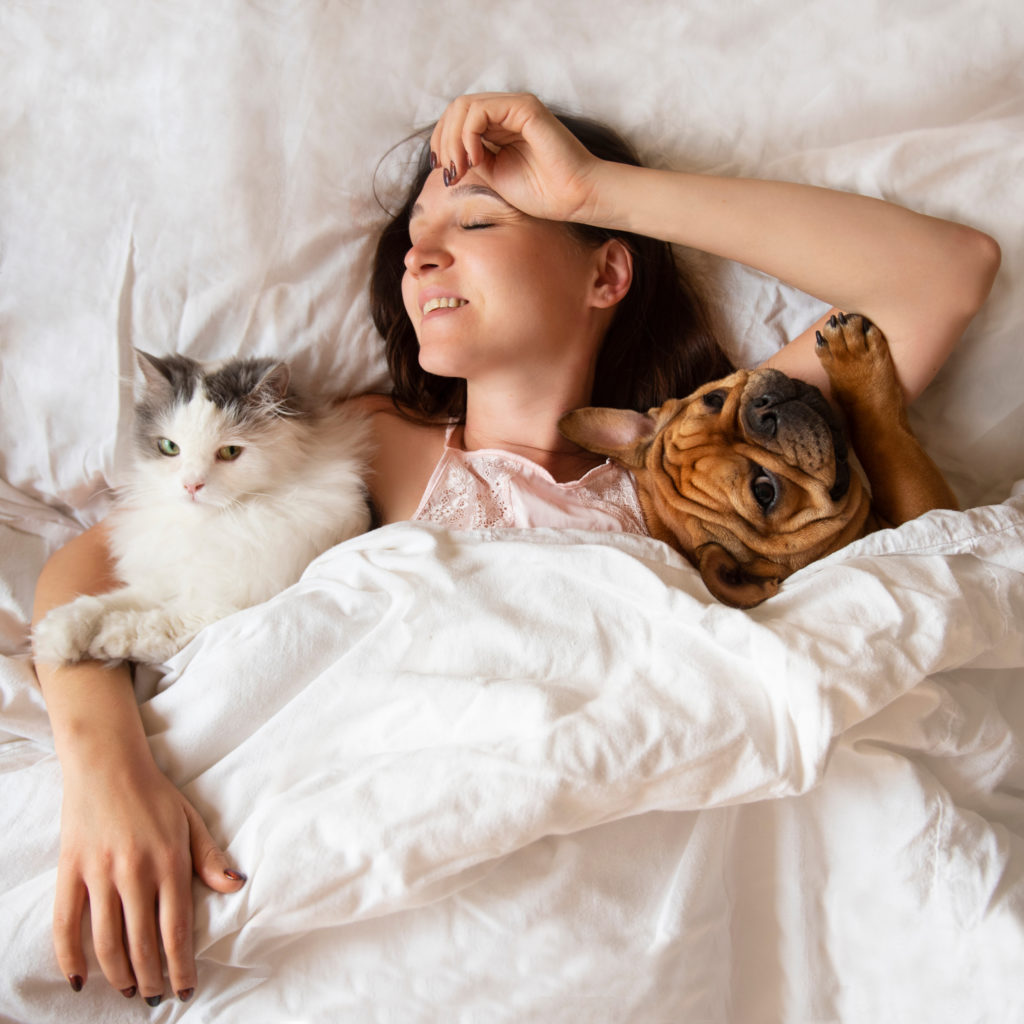
We all know that getting a good night’s sleep is essential for our overall health and wellbeing. But when you add a pet into the mix, things can get complicated. Sharing your bed with your furry friend may come with some benefits, but it could also lead to disrupted sleep patterns or other issues. We’ll explore how having pets in the bedroom can affect your sleep and provide tips on how to optimize your sleeping environment despite their presence. From understanding the effects of sharing a bed with animals to learning strategies for training them for better sleeping habits, we’ll cover it all! So read on if you want to learn more about making sure both you and your pet are getting enough restful sleep each night!
Having a pet sleep in your bed can have many benefits. Studies have shown that sleeping with your pet can help to reduce stress levels, ease anxiety, and boost overall feelings of wellbeing. It can also lead to better quality sleep as pets tend to be good at comforting their owners during the night, helping them to enjoy a more restful rest. Physical contact between you and your pet when sleeping can also promote production of oxytocin, sometimes known as the love hormone, which helps us to feel content and relaxed. Additionally, snuggling up with your pet provides a feeling of security which helps some people stay asleep for longer. Sharing a bed with your pet can truly be beneficial for everyone involved.
From cats that curl up into balls and purr away to dogs that will do whatever it takes to get some extra snuggles at night, many of us welcome our pets with open arms when it comes to sleeping in our beds. While this cuddly time may include a myriad of benefits such as companionship and increased restfulness, there are also potential drawbacks to consider when thinking about sharing a bed with your beloved pet. For starters, animals tend to move around a lot more at night than humans – this means more tossing and turning which can lead to disturbed sleep and disrupted dreams. Additionally, pets have their own sleeping needs and preferences just like us, so if you are constantly rearranging the bed because of your pet’s restless movements or strange sleeping positions then you may find yourself suffering from sleep deprivation.
For many pet owners, having their animal in the bedroom is an essential part of their sleep routine, however this can affect sleep quality due to noise and other distractions. To optimize sleeping speed while still sharing your bedroom with your pet, try setting boundaries on where they can go during nap or bedtime. Additionally, giving your pet plenty of exercise throughout the day can help tire them out for nighttime so that they are less likely to disturb your rest. Finally, if the presence of pets during sleep affects you more than desired, try establishing a routine where they can stay outside the bedroom by providing them a comfortable area and include a favorite toy or blanket from home to make sure they enjoy getting some alone time.
Overall, having a pet sleep in your bed can be beneficial for both you and your furry friend. However, it is important to remember that pets also have their own sleeping needs which must be taken into consideration when deciding how best to optimize the bedroom environment for restful sleep. By understanding the effects of sharing a bed with animals and implementing strategies such as providing enough exercise throughout the day, pet owners can enjoy cuddly time while still getting enough quality shut eye each night. So, if you’re looking for ways to make sure both you and your pet are getting enough restful sleep each night, these tips should help!


